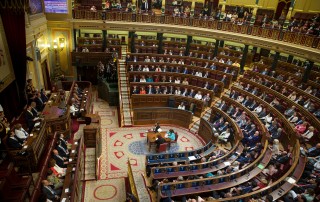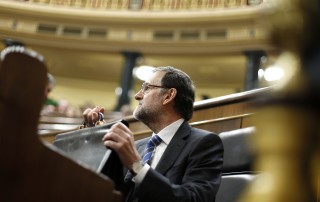EMPODERANDO AL PERIODISMO A TRAVÉS DEL DERECHO DE ACCESO A LA INFORMACIÓN
EL MANUAL ‘LEGAL LEAKS’ AYUDA A PERIODISTAS A OBTENER
INFORMACIÓN USANDO LAS LEYES DE ACCESO A LA INFORMACIÓN
Why is the right of access to information important for journalism?
A Guide for Journalists on How to Access Information
The Legal Leaks Toolkit, developed by Access Info Europe and n-ost, helps journalists access information using Access to Information laws. The Toolkit is available in a generic international version and can be adapted to the legal framework of any country. The existing national versions, translated into local languages, are available below. You can also read more below about our training programme and about how to contact
the Legal Leaks Help Desk.
Why do media experts think access to information is important?
Journalists, activists, and media experts speak about the importance of access to information in their daily work. Watch all interviews here!
That little detail in the relationship between journalists and sources, that little one, is so important that could change the way in which we tell stories.
It is extremely important that there is this mechanism that you can use as a journalist to say «Hang on a minute, you need to give us this, because we have a right to know».
It’s a great way to get stories, it’s a great way to fin out what governments in particular are doing, it’s a great way to find out where money goes, it’s a great way to prove accountability.
The right of access to information is very important for the journalists’ work; it’s important for everyday work, but it’s even more important for investigations.
Journalism is about investigation, it’s about asking questions; but it’s about documents as well, as a proof for questions, as a proof for answers
Basically, I need access to information to do my job as someone who is supposed to ensure the accountability of politicians, of public officials.
Cover photo: European Parliament via Flickr (CC BY-NC-ND 2.0)
ÚLTIMAS NOTICIAS SOBRE EMPODERANDO AL PERIODISMO
Polétika: Los Presupuestos Generales del Estado muestran un paso atrás en la lucha contra la desigualdad en esta legislatura
» Polétika, una red de 500 organizaciones de la cual forma parte Access Info Europe, presenta el informe Pasos atrás en la legislatura del cambio » El informe alerta de que la paralización gubernamental y parlamentaria frena las políticas para reducir la desigualdad » La calidad democrática basada en la transparencia, la participación ciudadana y las libertades siguen siendo una asignatura
Jornada “Estado Abierto: Principales Retos y Oportunidades para los Poderes Públicos y la Sociedad Civil»
Fecha: 07/05/2018 Lugar: Sede de la Secretaría de Estado de Función Pública, Madrid
Acuerdo México-UE: contrastes informativos… salvo en derechos humanos
Proceso | 25/04/2018 Español - El sábado 21 fue anunciado un acuerdo de principio en la renegociación del tratado comercial entre México y la Unión Europea (UE). Hasta este miércoles 25, la manera en que cada una de las partes había comunicado a sus ciudadanos los resultados de ese proceso de negociación –comenzado hace dos años– exhibió dos culturas informativas
La sociedad civil pide recursos suficientes en los Presupuestos Generales para velar por la transparencia
Madrid, 23 abril 2018 - Con ocasión del próximo debate de los Presupuestos Generales del Estado 2018, Access Info Europe y 20 organizaciones de la Coalición ProAcceso [1] instan a los grupos parlamentarios a garantizar que el Consejo de Transparencia y Buen Gobierno (CTBG) dispone de los recursos suficientes para llevar a cabo su labor de vigilancia y control de
TICTeC 2018: Conferencias sobre Tecnología Cívica
Fecha: 18/04/2018 Lugar: Lisboa
Helen Darbishire: “Right of access to information is one of the instruments to defend democracy”
Legal Dialogue| 12/04/2018 Inglés - Citizens have a right to know how their money is being spent by governments, investigative journalists have a right to obtain information for their investigations, civil society organizations are fighting to get better access to data around Europe—all of them are exercising the old European right of access to information. Leer más...


